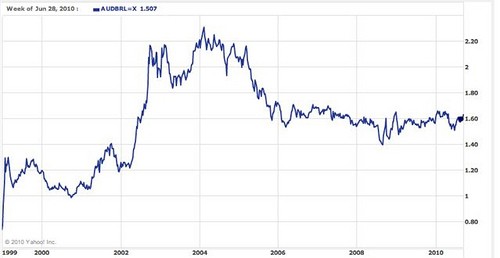Should You Borrow To Invest 5 Questions Will Tell You
Post on: 12 Июль, 2015 No Comment

Some of the wealthiest people you know became that way because they were willing to borrow to invest.
But does that mean it’s the right thing for you to do? At times…yes. But the circumstances under which this maneuver makes sense are very limited.
Keep in mind that Im talking about investing not taking a mortgage to buy a home. Thats an entirely different mater.
The good news it’s not a difficult problem to work out. If you take the time to answer the following 5 questions, you’ll know if it makes sense to take a loan to make an investment or not.
1. What will it cost you to borrow the money?
After youve taken steps to reduce the cost of borrowing money. think about your cost after tax and think about your cost over time as well. The after tax calculation isn’t difficult. Let’s say you are considering refinancing your home for example. If the interest rate is 4% but you are in the 40% tax bracket, your actual cost is 4% less 40% of 4% or 2.4%. Simple.
The “over time” element is important as well but easy to overlook. What is your real cost of borrowing over the life of the investment? Can the interest rate change at some time or is it fixed for the entire period? Even if the rate is fixed, if your income changes and/or the tax code is updated, your after-tax cost of funds might change as well. Some of these costs are predictable and some can only be guessed at. But all of them should be considered.
2. How much will you earn on your investment?
Sometimes it’s very difficult to foresee how much you are going to make on an investment. This is especially true when you are looking at long term investments. The greater the time-span the more difficult it is to accurately predict. But in order to make an informed decision you have to make some assumptions about future returns.
This is why I am very much against borrowing money to invest in the stock market. The returns might look great long-term (which is still a gamble) but they are completely unpredictable over the short-term. Of course I am optimistic about the long-term prospects for equity investments. But I would never borrow money to put into the market and I strongly encourage you to follow my lead.
When it comes to borrowing money to invest, it only makes sense to do so if the returns are somewhat predictable – and that boils it down to buying bonds, real estate or maybe a business. Look at the after-tax cash flow from these investments. If that return is greater than the cost, it makes sense to continue your analysis. If not, don’t waste your time.
If you carry high-cost debt, it can be brilliant to borrow to pay it off. Think of this as refinancing your debt. It can be smart if the refinanced cost is lower than the existing debt.
3. When will you receive the earnings?
We don’t have the time to discuss present value discounted cash flows, and it’s an extremely boring topic anyway. You’d probably prefer to run over your own foot with a cement mixer than read about that. But talk to your CPA or financial advisor about the expected cash flows of your proposed investment and ask them to run a quick analysis on it for you. It’s important to consider the time value of money and they can show you how this works without too much problem.
4. How risky are the investments?
How much risk can you take with your money? This question might be the most important question of all. Here’s why. When you take on debt, you are fully obligated to make those payments. Using our example above, you can be absolutely sure that your cost is 4% less the tax benefits of borrowing the money.

But you can’t be so sure about your returns. When you make an investment, there are always risks that things won’t turn out as planned. Before I invest, I look at the worst-case scenario and only go forward if I can live with this pessimistic outcome. I’ve rarely experienced anything so horrible as the worst-possible result. But because I’m ready for it, I’m always pleasantly surprised by what actually unfolds. Always get clarity on the worst-case and make sure you can live with it before proceeding.
5. How much experience do you have with these kinds of investments?
This is a question that few people ask themselves yet it’s vital to successful investing. The more experience you have with a given investment the more you know what to expect and the less risk you have.
For example, if you know how bonds work you know that they fluctuate in value as a result of changes in interest rates. That experience helps you make better decisions. That means you won’t bail out at the first sign of trouble and because you know what to expect, your risk is reduced.
If you are seasoned real estate investors, your pro forma cash flow statements are more reliable. That also mutes your risk.
But let’s look at the alternative. Let’s say you want to borrow money to invest in a business that you know nothing about like a restaurant or laundromat. This is probably the riskiest thing you could possibly do because there is so much that might go wrong. You have no idea what to expect because it’s a road you’ve never traveled. As a result, it’s more difficult to predict cash flows. This is an example when it’s probably a very bad idea to borrow money to invest.
If you take a loan to make an investment, you take on more risk. The best way to mitigate those risks is by having experience with that kind of investment so you can more accurately predict future cash flows. That’s the bottom line.
Have you borrowed money to invest. How did it work out? What would you do differently today?














